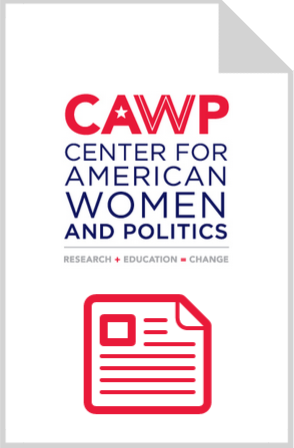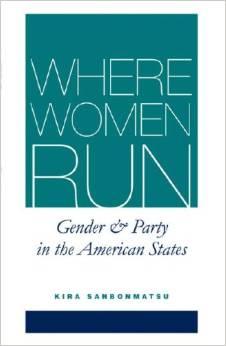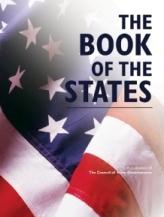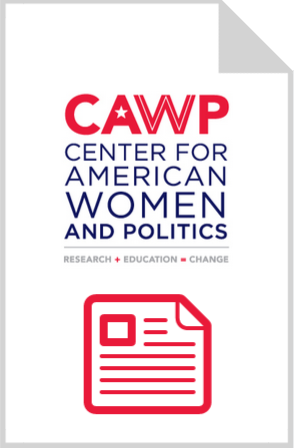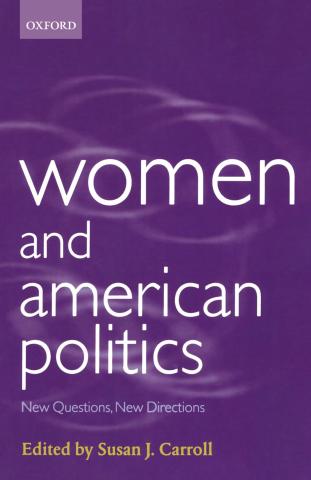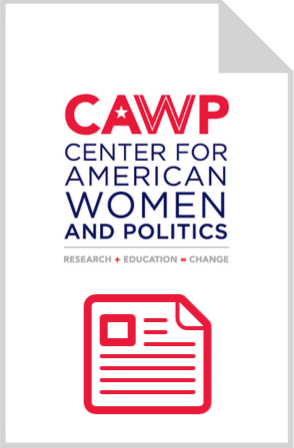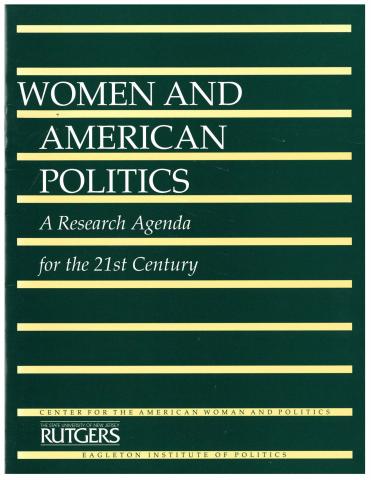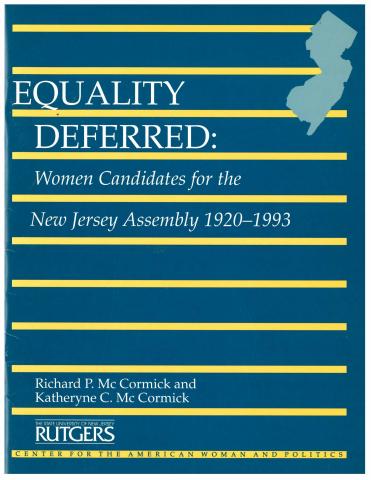CAWP Recruitment Studies Datasets
FileResearchCAWP ScholarCandidate RecruitmentState LegislatureLocalGender Pools and Puzzles: Charting a 'Women's Path' to the Legislature
by Kira Sanbonmatsu
Politics & Gender 2006, Volume 2 (September)ArticleResearchCAWP ScholarCandidate RecruitmentState LegislatureWhere Women Run: Gender and Party in the American States
by Kira Sanbonmatsu
University of Michigan Press, 2006, 264 pagesBookResearchCAWP ScholarPolitical PartiesCandidates and CampaignsCandidate RecruitmentWomen in State Government: Historical Overview and Current Trends
by Susan J. Carroll
Chapter in The Book of the States, edited by The Council of State Governments, 2004ArticleResearchCAWP ScholarCandidate RecruitmentWomen Political AppointeesImpact of Women Public OfficialsState LegislatureStatewide ExecutiveCandidate Recruitment and Women's Election to the State Legislatures
by Kira Sanbonmatsu
Center for American Women and Politics, Eagleton Institute of Politics, Rutgers, The State University of New Jersey, 2003, 47 pagesReportResearchCAWP ScholarPolitical PartiesCandidates and CampaignsCandidate RecruitmentWomen and American Politics: New Questions, New Directions
Edited by Susan J. Carroll
Oxford University Press, 2003, 262 pagesBookResearchCAWP ScholarPolitical PartiesCivic and Political ActivismCandidates and CampaignsCandidate RecruitmentGender and Race/EthnicityWomen Voters and the Gender GapGender, Political Ambition, and the Initial Decision to Run for Office
by Richard L. Fox
Center for American Women and Politics, Eagleton Institute of Politics, Rutgers, The State University of New Jersey, 2003, 14 pagesArticleResearchCandidates and CampaignsCandidate Recruitment"Political Parties and the Recruitment of Women to State Legislatures"
by Kira Sanbonmatsu
Journal of Politics 2002, Volume 64 (August)ArticleResearchCAWP ScholarPolitical PartiesCandidate RecruitmentState LegislatureWomen and American Politics: A Research Agenda for the 21st Century
Center for American Women and Politics, Eagleton Institute of Politics, Rutgers, The State University of New Jersey, 1996, 29 pages
ReportResearchCandidate RecruitmentCandidates and CampaignsCivic and Political ActivismWomen Voters and the Gender GapEquality Deferred: Women Candidates for the New Jersey Assembly 1920-1993
by Richard P. and Katheryne McCormick
Center for American Women and Politics, 1994, 49 pagesReportNew JerseyResearchCandidates and CampaignsCandidate RecruitmentState Legislature


